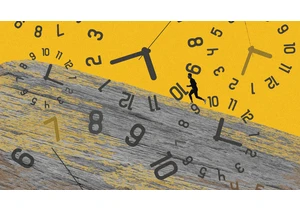President Donald Trump signed the TAKE IT DOWN Act into law on Monday, strengthening federal protections for victims of revenge porn and AI-generated sexual images.
The bill, introduced by Sen. Ted Cruz (R-TX) and Sen. Amy Klobuchar (D-MN), makes it illegal to “knowingly publish” or threaten to share nonconsensual intimate imagery—whether real or generated by artificial intelligence—without the person’s consent. It also requires tech platforms to remove such images within 48 hours of being notified and to take steps to eliminate duplicate content.
Previously, federal law only banned the creation or distribution of realistic, AI-generated explicit images of children, while protections for adults varied by state. As a result, laws differed in how the crime was classified and penalized, leading to inconsistent criminal prosecutions. Some victims also struggled to have images taken down from websites. This legislation, which garnered overwhelming bipartisan support, marks the first federal law aimed at protecting adult victims.
Now, people who post such content and are convicted could face penalties and prison time. The Federal Trade Commission could also sue tech companies for not complying with the law, Axios reports.
“We must provide victims of online abuse with the legal protections they need when intimate images are shared without their consent, especially now that deepfakes are creating horrifying new opportunities for abuse,” Klobuchar said in a statement after the bill passed in Congress. “These images can ruin lives and reputations. But now that our bipartisan legislation is becoming law, victims will be able to have this material removed from social media platforms, and law enforcement can hold perpetrators accountable.”
Tech giants have expressed broad support for the bill. Meta, which owns Instagram and Facebook, joined Snap, Google, Microsoft, TikTok, X, Amazon, Bumble, and Match Group in backing the legislation.
“Having an intimate image—real or AI-generated—shared without consent can be devastating, and Meta developed and backs many efforts to help prevent it,” Meta spokesman Andy Stone said in a statement in March.
First lady Melania Trump has also championed the TAKE IT DOWN Act (which stands for Tools to Address Known Exploitation by Immobilizing Technological Deepfakes on Websites and Networks), lobbying lawmakers and speaking with teenage victims. She appeared alongside Trump at the bill’s signing.
“It’s heartbreaking to witness young teens, especially girls, grappling with the overwhelming challenges posed by malicious online content like deepfakes,” the first lady said in March. “Every young person deserves a safe online space to express themselves free without the looming threat of exploitation or harm.”
Войдите, чтобы добавить комментарий
Другие сообщения в этой группе

Chris Guillebeau spent years racing against time, visiting all 193 countries before he turned 35, hosting annual gatherings of thousands, and writing bestsellers like The $100 Startup. Bu

As my family settles into a whole new city and community, I’ve been eagerly exploring a variety of sites and services for discovering new gems and getting to know our area. And while our recent cr


If you can’t afford a lawyer, it turns out there’s nothing stopping you from sending a scary-looking letter that, at first glance, seems to come from one—and hoping the recipient doesn’t read the


Tokenization has long been a buzzword for crypto enthusiasts, who have been arguing for years that blo

Ding dong ditching has resurfaced as the “door kick challenge.” But this time it could lead to criminal charges and potentially deadly consequences.
In Florida this week, five mino
